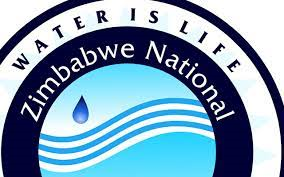The Zimbabwe National Water Authority (ZINWA) has shed light on the intricacies of water abstraction agreements and the measures being taken to ensure efficient and sustainable water use across the nation.
In an interview with The Environment, ZINWA Head of Corporate Communications and Marketing Marjorie Munyonga highlighted that water abstraction agreements serve as contracts between individuals or entities and ZINWA, facilitating the reservation of raw water from national or state dams to meet various needs.
“The first criterion when assessing applications for water abstraction agreements is water use. The Water Act requires that any person using water for purposes other than primary purposes should do so in terms of a water abstraction agreement. The other major consideration is water availability. Water availability determines allocations for the diverse users.
“ZINWA is increasing its monitoring and surveillance capabilities to allow for early detection of any illegal water abstractions along river channels. This will include physical surveillance and leveraging on technologies such as GIS. In addition, ZINWA already has a position where water will be released only to agreement holders and in accordance with their water orders. Where possible, agreement holders. Water users are also encouraged to install measuring devices at their points of abstraction,” Munyonga said.
She said water abstraction agreements operate on a yearly basis, aligning with the water year from April 1st to March 31st and renewal of agreements is contingent upon the availability of water in the dams. “Where the water is insufficient, the water allocation can be reviewed downwards before an agreement can be signed. It is therefore very important for farmers to obtain agreements before planting since agreements are their security and confirmation of water availability,” she said
She said Integrated Water Resources Management principles guide ZINWA’s allocation decisions, prioritizing human life while also considering the needs of other legitimate users, including the environment. Munyonga emphasized the role of water-efficient irrigation systems and crops in mitigating the effects of climate change on water resources.
“Water has not been spared the effects of climate change. This is evident in increased climate variability which has affected rainfall patterns and resultantly the availability of water. In this regard, ZINWA emphasises on the need for water users to adopt water efficient irrigation systems so as to save water. This also include growing water efficient crops,” she said
Furthermore, Munyonga said the agreement system includes provisions to penalize individuals or entities that exceed their water allocations, discouraging speculative holding of water and promoting sustainable usage practices. Water billing is based on allocations rather than consumption, incentivizing users to apply for only what they genuinely require.



